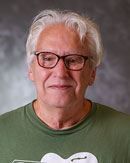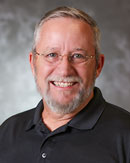New River Community College will be closed for the holidays from December 23 at 12:00P.M. through January 2, 2026. College will reopen on January 5th, 2026 at 8:00A.M.
"...I opened it up and started flipping through the hard copy. Wow - your students are amazing. Every project looks as professional as something done by the Skunkworks. The designs look wild but credible, and the CAD work is excellent. And as far as the CAD work goes - absolutely first rate. So, feel free to send next year's offerings as well."
Best regards,
- Daniel P. Raymer, Ph.D. President, Conceptual Research Corp.
http://www.aircraftdesign.com
A few general quotes:
"I've seen material that is not up to this level coming from many artists on their demo reel for animation."
Best Regards,
"... compared with the prior year, this is a huge leap."
"I am impressed at the amount of work and the technical issues attempted in these animations and renders."
"I think that all the teams should be proud of their hard work."
"Neat concept. I'm sure the Navy would love to have one (or two)!"
"Overall, very impressive artistically and nice creativity on the technical side."
"I can't believe your guys got some pretty realistic looking cloth in this shot. That is very advanced."
"The landing gear and engine pivoting sequence is fantastic."
"Overall, great animation, as it seemed short, realistic, and you tended to focus on your strong points, the single angle shot of the craft lifting off, then again landing."
"Great job!"
"The landing gear renders are awesome."
"Great lighting. I also really like the front, side, top view shots."
"Great composition and layout. "
"This concept is probably the most realistic and very similar to a few concepts we are actively working on for the Air Force. "
"We would hate to have to grade anyone on these projects. It was clearly a lot of good work. Congratulations to all teams, we were impressed!"
- Dr. John E. Bradford, President
SpaceWorks Engineering
"Engineering Today, Enabling Tomorrow..."
Office: 1+770.379.8007
Fax: 1+770.379.8001
Mobile: 1+770.402.5063
E-mail: john.bradford@sei.aero
Website: www.sei.aero Nationally
Jeff,
Thanks again for the opportunity to review your students' work. And apologies for the delay in closing the loop with you.I’ll start with an overall comment – the work in these projects is simply outstanding. I am impressed by the attention to detail, the focus on presentation, and the familiarity with current timely subjects in aeronautics. Your students have obviously done a thorough job of scouring the literature for some of the latest and greatest advances in aerospace. I understand that they are not coming to these projects as aerospace engineers, and so that makes the work all the more noteworthy. The quality of the graphics and the rendering of mechanical components is as good as any example I have seen in either industry or academia.
Some specific details on the projects:
Poseidon is an innovative hybrid air/water vehicle. The idea of a single craft that can operate in both media has captured the imagination of engineers and writers for many decades, and the practical advantages of such a vehicle would be great indeed. In fact, there has been a recent renewal of interest in such hybrid craft for defense applications, including unmanned aircraft that might deploy from a submarine.… your students have done a very nice job of considering the trades associated with such a hybrid craft. They have thought through the need for dual propulsion, and what those systems might require and where they might be positioned. The thought about hydrofoil design and deployment is especially good. They have also thought through the use of materials; carbon fiber is in fact a good choice, as it provides high strength at low weight, and also has the stiffness required for water operation. Work on the propulsion system is quite impressive.
The VX-1 Stinger vehicle is obviously derived from stealth aircraft, and also reflects the state-of-the-art in modern military aircraft design. It is especially intriguing that the students have chosen to blend a stealthy geometry with vertical lift capability. This also pulls from some timely, and exciting directions in the aerospace field. The students have also thought through the mission implications of such an aircraft.
Of particular note is the care and detail applied to the internal structural design of the Stinger. Students were very thoughtful in their notions of component placement, internal arrangement, fuel supply, etc. Details on engine location, placement, and especially the vectoring nozzle are excellent. Renderings on the lift-fan system are eye-watering. Special kudos also to the thoughtfulness associated with the choice of weaponry, including the detailed rendering of the Hellfire.
A few other comments – The Stinger seems to be a stealthy platform. Note that the mounting of external stores would tend to increase the aircraft’s radar cross-section, so one might consider including an internal storage bay instead. Also note that the presence of the lift fans, with associated articulation, etc. would also tend to increase a radar cross-section. One might also wonder about the operational utility of an aircraft of this type having VTOL capabilities. That might not be worth the weight penalty of a lift-fan system. However, the students are still thinking out of the box in thinking about the blending of multiple technologies!
The HTX-4 Venom is a vehicle after my own hypersonic heart. The students have done a thorough job of investigating current hypersonics programs, and thinking how they might lead to larger, more capable vehicles. The specific configuration chosen seems to follow along the lines of a so-called “waverider” design, taking maximum benefit of the shockwave that forms at high speeds for effective hypersonic flight. Particularly noteworthy are the detailed designs of landing gear – sometimes the details of such items as landing gear will drive the success or failure of a design. The students have also thought through the inclusion of the control system, as well as made choices on a combined-cycle system that will reach scramjet speeds.
- Dr. Mark Lewis
President, American Institute of Aeronautics and Astronautics
and Willis Young Prof. and Chair,
Department of Aerospace Engineering
- A. James Clark School of Engineering
University of Maryland
College Park, MD 20742
(301) 405-1133 lewis@eng.umd.edu
"I compared the work of Professor Levy’s students to the quality of work form my team. I was very impressed with the detail and sophistication of the design work. The modeling was excellent and the texturing was even better. Based on what I saw, I could easily hire all three students as designers on my team. All three students have a very bright future ahead of them."
"Please stay in touch. I do love to see what your students are working on. I really appreciate being included in that process."
- Pete
"The presentation you forwarded me is very impressive. It’s amazing (and a little scary) the amount of information that is in the public domain about Virginia Class Submarines. Of course 3D modeling and visualization are the current and future tools for almost every kind of design. There are very few things as complex as our warships."
"Your team has done an excellent job, not only in modeling but in the presentation of the project. It’s obvious that there was a lot of work required for the high level design that your team has demonstrated. This team has the kind of people we are looking for to be part of our design force. 3D modeling and simulation saves us millions of dollars in not having to build physical mockups. The 3D model not only allows us to visualize the design, but also allows us to develop manufacturing process/sequences based on being able to see how a completed design goes together. Very Well Done!!!"
- Doug Scott, E10
Submarine Engineering & Design Programs
B600/1 - lobby
Adjunct Instructor

Instructor of Drafting/EDT Program Head
